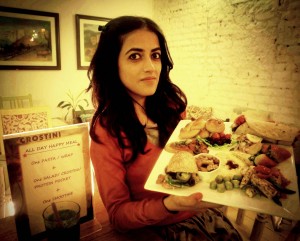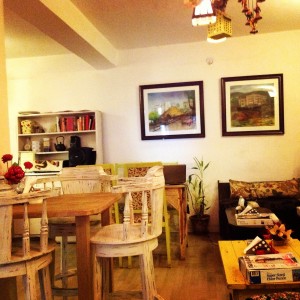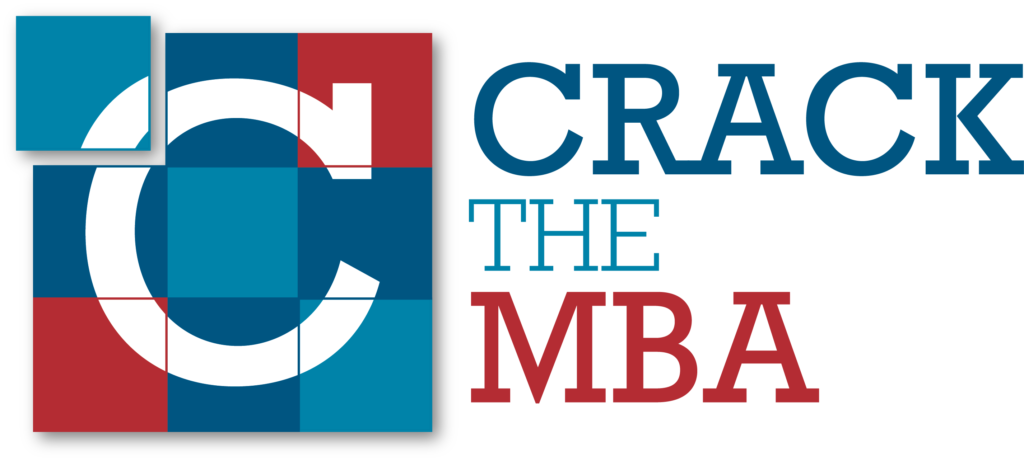A lot of MBAs end up switching careers post MBA with some popular job choices being Management Consulting, Investment Banking and Private Equity. Therefore, one might wonder why a Chartered Accountant, INSEAD MBA, Former I-Banker would move from overseas to India to get into the hospitality business, with no prior track record in the same.
Childhood Influences
With an army man for father and a teacher for mother, Mitali and her younger sister were brought up valuing ideologies such as hard work, perfection and discipline. Small wonder then that Mitali was bestowed with academic honors through high school. Aunts and uncles sought her guidance for their children. At social gatherings, she was the apple of everyone’s eyes; some labels commonly used to refer to her were intelligent, well behaved and docile.
Performing to people’s expectations is what she kept doing. Uncles and aunts would say, “She’s our star daughter. She’s the pride of the family”. Mitali was on her way to a comfortable, respectable and secure life.
At the age of 14, Mitali declared for the first time, “I want to grow up to be a business [wo]man”. Her parents laughed it off as a teenage dream.
Since turning entrepreneur, every time there’s a family get-together, Mitali knows people will feel sorry for her. Her aunts and uncles always ask, “When are you shutting down Crostini? Go back to Dubai. Go back to your career.” Mitali says, “They feel so bad, they feel I was so much better off, they feel this is wrong on so many fronts. I have learnt to not be perturbed by these comments, as I believe in what I am doing. Regardless, breaking social shackles in India is difficult.”
Mitali cracked the Chartered Accountant examination that has a selectivity rate of 2-3%. From thereon, she went on to work for three of the Big Four accounting firms – Deloitte, Ernst & Young and KPMG in Delhi & Mumbai.
While Mitali loved her work in M&A at KPMG, she found her lifestyle was adversely affecting her health. She worked until 2 am everyday and ended up snacking on pizza and Haldiram along with her colleagues. She was not happy with her health and food choices and started researching about nutrition. She learnt that good health is dependent: 70% on food, 20% on exercise and 10% on relaxation. She realized that she was getting 80% wrong due to her eating habits and the stress of her job. She decided to put an end to eating refined flour, white sugar and refined oil. Within two months, she saw her health improve rapidly.
Why MBA
Studying and working in Finance for six years, Mitali learnt about Investment Banking (IB) and was excited at the prospect of helping clients meet their financial needs. To make the transition into the structured recruiting process of Banking, Mitali decided to pursue an MBA. She chose INSEAD as it allowed her to complete her education in 10 months with two months of internship and an option to study in France and Singapore.
INSEAD
In the first half of INSEAD, Mitali felt lost and introverted. She says, “I had never networked in my life, I had no concept of networking. When you become a CA in India, you apply to KPMG and you get in based on merit. The softer skills do not affect the decision to recruit you. I had a strong technical background but I wasn’t at that level where you have sophisticated soft skills. The setup abroad is very different from India. I wish I had gone a bit prepared, but I had no clue. I realized that I had to be proactive to change things.”
Further, she suffered a setback when Bears Stearns came to the brink of bankruptcy in March 2008 and when Lehman collapsed leading to the financial crisis.
In the middle of the year, she took active leadership roles with the IB and PE Clubs. She organized a banking trek to Hong Kong and reached out to alumni in the leading investment banks in Hong Kong. She believes this helped her get noticed by employers and recruiters alike.
She continued to pursue her goal and managed to land a job in Investment Banking in Dubai at Clarkson Investment Services, a boutique Investment Bank.
She advises people to prepare adequately prior to reaching school, as other candidates will be well prepared and they will have experience with networking. She says, “the more prepared you are when you arrive on campus, greater your odds of success”.
Mitali spent the first half of her program in France and the second half in Singapore. At Fontainebleau, she lived in a chateau along with a French, a Belgian, and a Brazilian roommate. She fondly remembers her time spent with them, coming back home from classes, trying different cuisines – these memories will stay with her forever.
In the first four months, it was a general program for all. Subsequently, Mitali focused on finance electives and loved the electives taught by Pierre Hillion (also known as the “god of Finance at INSEAD”). In hindsight, she rues not taking more marketing and strategy electives. She was glad, however, that she took a couple of entrepreneurship electives.
Her favorite elective was Realising Entrepreneurship Potential (REP) where she spent two months, along with four classmates, researching a furniture manufacturer for a potential buyout. Her team visited the company, got pretend business cards and conference rooms and had to convince the company to share their financials and were at the final stage of purchase. She spoke about cases where students have gone on to buy firms they researched.
Another class she recommends is Negotiations by Professor Horacio Falcao. She says it is an expensive class (in the bidding system) as everyone wants to take it.
Even though she went into Investment Banking after INSEAD, Mitali had her eyes set on becoming an entrepreneur in the long-term. She says, “I knew I would be an entrepreneur and I would have my own empire”.
We learn that one of her close friends and INSEAD classmate who was from a family business background was an influence as well. She liked the 360-degree focus on different industries and/or different functions that entrepreneurship allowed.
Dubai
Therefore, a couple of years after working in IB in Dubai, in early 2011, Mitali started thinking about different business ideas. She felt she would be incomplete as a person/professional if she did not push herself to learn more. She did not feel satisfied with knowing one thing. She did not know how to price products, optimize a supply chain, etc. She thought she wanted to know all that.
Thinking back to her days at KPMG, the idea of introducing healthy eating options in India attracted her as she thought it was a genuine problem for young people working in challenging jobs that required working till late. She recalled how outside India, it had been easy for her to get healthy food – smoothies, edamame, etc. She thought there could be a real market for healthy eating options from working professionals.
She thought, “Why don’t I look at implementing something like a Pret a Manger in India – a place where I can offer sandwiches, salads, pastas with healthy ingredients?”
This was how the idea of Crostini was born. Mitali reached out to people in hotel management in India to get a sense for what kind of capital she would need and to get a sense for the industry.
She also started saving to build her nest egg from which she could invest. The desire was at its peak. After 10-12 months, she thought “I have enough capital to run my business for a couple of years, that’s when I decided to make the jump”.
Crostini
The menu was her starting point as she thought, “What do I typically eat?” Lots of answers came rushing to her – salads with sundried tomatoes, avocadoes or smoothie for dinner.
Outside of India, salads can comprise a meal on their own. Mitali wanted to introduce wholesome, warm salads – with rice, chicken/tofu – that could be consumed as an entire meal in India. She’s proudest of the salads on their menu.

The Multi-Talented MBA
She studied nutrition contents of ingredients and formalized her knowledge that she had been accumulating for a while answering questions such as – why are blue berries good for you? Why are trans fats bad for you? So on and so forth…
She also conducted primary research at numerous restaurants in London and Dubai. The menu contains best practices from many restaurants. For example, she instituted classic combinations that blend well like spinach and ricotta, mushroom and bell pepper.
She says she is always taking mental notes. As an example, on her return from a trip to Singapore last year, one of three new items she added to her menu was green tea and soymilk latte.
Move to India
She moved back to Delhi in November 2011 and surveyed different markets. She realized that the landscape of dining out in Delhi had completely changed from what she remembered. She was surprised to see that some ideas she had were already in place. She took time to refine her ideas to ensure she could offer a unique proposition to cater to people’s needs.
Finally, after two months, at the end of December, she zeroed in on the location. In parallel, she was deciding on the name. She started out wanting a word that conveyed – healthy or alive. However, eventually, she chose the word “Crostini” – which means small pieces of toast – due to its ease of pronunciation.
Mitali also hired a chef consultant who had an Italian & Mediterranean background. Together, they focused on creating a menu that married taste and health.
Crostini is the only place in the city to cook their food 100% in olive oil. Italian restaurants use olive oil in a few things – dressings mostly. Crostini uses it in everything; they don’t have any other oil in their kitchen. They have whole wheat pizza. Their white sauce has olive oil, wheat flour and milk (as opposed to butter, maida and cream at other places). Basically, her menu contains healthier version of popular dishes.
Her first restaurant was a 130 square foot takeout location in Greater Kailash-1 (GK-1) M-block market. To her dismay, on the day of the launch i.e. 5th February, 2012, her chef quit and took three employees along with him. Mitali’s heart fell. She made numerous calls and was able to get two chefs for the next day.
At the end of the second day, those two chefs quit as well. Mitali was truly at her wit’s end and was unable to find replacements. Her dream seemed to be coming crashing down on her and even though they did not say it, she could hear the silent “we told you so” in her parents’ gaze.
Mitali had the unenviable task of shutting shop on the third and fourth days.
However, when she opened shop on the fifth day, she had a plan. She got three rickshaw pullers and put aprons on them and had them stand in the restaurant. She took to the kitchen herself and whipped out all the orders herself – no mean task for someone cooking for the first time. Her idea worked and she had a full house that day.
This experience provided Mitali with an early lesson on her dependence on employees. She has retained a majority of her employees for over a year now – an impressive achievement in an industry with an attrition rate of 450%. She says that managing people is important and challenging as employees and employers have little allegiance to each other. Employees leave for even Rs. 500 more ($10) and employers are quick to replace a sick employee.
In the first two months, she was having a nervous breakdown as she was yelling and screaming. She says, “Living with my parents, I had no idea what they were dealing with. I got a cushy job and was working with smart people. Suddenly I was dealing with plumbers, electricians and waiters. At KPMG, if someone dialed in to a call 30 seconds late, they would apologize. Here, if a blue-collar worker shows up four hours late, I am grateful they showed up at all.”
Initially, she was taken for a ride – money-wise and quality-wise. On the third day of operations, the glass entrance door came off and the vendor refused to honor the warranty.
Due to such experiences, Mitali considers managing people as one of her most important tasks.
An important personal motivation behind Mitali’s move to India was proximity to family. She shares a close relationship with her parents and younger sister. They engage on a daily basis and she ensures she sees them every week. She wanted to be part of their life – be it something as little as buying a curtain or major things like celebrating festivals like Holi/Diwali together. She says she is glad to have struck a fine balance where she is able to spend time with her family and still pursue her dreams.
Marketing
Mitali has relied on both online and offline sources of marketing. She listed Crostini on all location based search engines such as Zomato, burrp, buzzintown. She put pamphlets in newspaper routes for her delivery areas. She has an active facebook page where she put up pictures of things they cooked everyday (facebook.com/crostinicafe). As a result of these activities, she got a lot of repeat and word of mouth traffic.
About ten months into operations, Mitali decided to relocate to a bigger place as she wanted to provide patrons the option of dining in. After researching a few places, she was sold on Hauz Khas Village as it was popular with her target audience.
Crostini is now located on the first floorof the building behind Gunpowder, on the same street as Elma Café. The new venue is four times the size of the previous location. We arrived on a Saturday, just after 1 PM and could hear Mitali directing a patron to the restaurant, “Ask for Golconda, which is #22 and Crostini is right next to it i.e. #21, on the first floor”. Looking at Mitali’s petite frame, we can instantly tell that fitness is not just a catch phrase, it is a mantra that Mitali lives her life by.

Crostini Cafe in Hauz Khas Village
As soon as we enter, we see jars of Whey Proteins that are used in the smoothies. We feel transported into a living room with comfortable couches, wooden tables and chairs, paintings, board games, a mini library and soft music.
We are amazed to learn that Mitali did the decor of the restaurant herself. She wanted to blend into Hauz Khas and have a cute place. Initially she was looking into a country house look that would give the feeling of living in a rural home in Europe. Having visited some such places in Valdobiedenne, an hour north of Venice, we can vouch for the same.
Future of Crostini
In the last 1 year, she has invested up to 30 lakhs of her own money and has managed to hit breakeven. She is looking for external funding for a second outlet at the moment and is talking to 2-3 potential investors in North America. Further, she is exploring expansion opportunities in Australia & Lebanon. Her ultimate vision is to have 200 Crostini outlets.
She wants someone to eat at Crostini 3-4 times/week. She wants to be the lunch place to go to. She wants to have deliver lunch (sandwich and/or smoothie) in the range of Rs. 150-250.
Lessons from Business School
In the first six months at Crostini, she was splurging, as she wanted to create a brand. Then she recalled sound bytes from her entrepreneurship professors saying, “Cash is King”. Therefore, in the last six months, she has become P&L oriented.
She is right now valuing her business for potential investors. She is glad she got an MBA abroad and worked in Investment Banking as she can have an intelligent conversation with anyone.
Living in India
All her friends had moved out of India. She did not know a single person. Now she knows so many people. It’s all because of Crostini. She ends up making friends with customers. She is very active socially, has dinner and drinks with different groups of friends. Friends also drop by Crostini every now and then.
Hobbies / Leisure Activities
Mitali learnt Kathak for six years in India and even continued in Dubai. Another activity that relaxes her is going for a swim.
She also enjoys participating in different events where she meets like-minded people such as Pecha Kucha (meaning “chit chat” in Japanese) nights. Pecha Kucha night is a concept that takes place in over 500 cities all over the world. Here, 7 or 8 entrepreneurs are invited as speakers and are asked to present 20 images in 20 seconds each.
Q&A with Mitali
Which role do you prefer: employee or entrepreneur?
Entrepreneur
Which city do you prefer: Delhi or Bombay?
Bombay
Where do you prefer to work: India or Overseas?
Overseas in a job
Which INSEAD campus did you enjoy more: Fontainebleau or Singapore?
Fontainebleau
What’s your favorite band?
The Killers
What would you do differently with Crostini?
Start off with a partner
What do you miss the most from your life abroad?
– Convenience: I could go for a swim at home or at work.
– Intellectual Stimulation: As a result of my chosen line of work in India, the larger part of my day is spent working with semi-literate people with whom I cannot discuss geo-political issues.
We wish Mitali all the best in her plans to scale up Crostini and look forward to following her journey!
